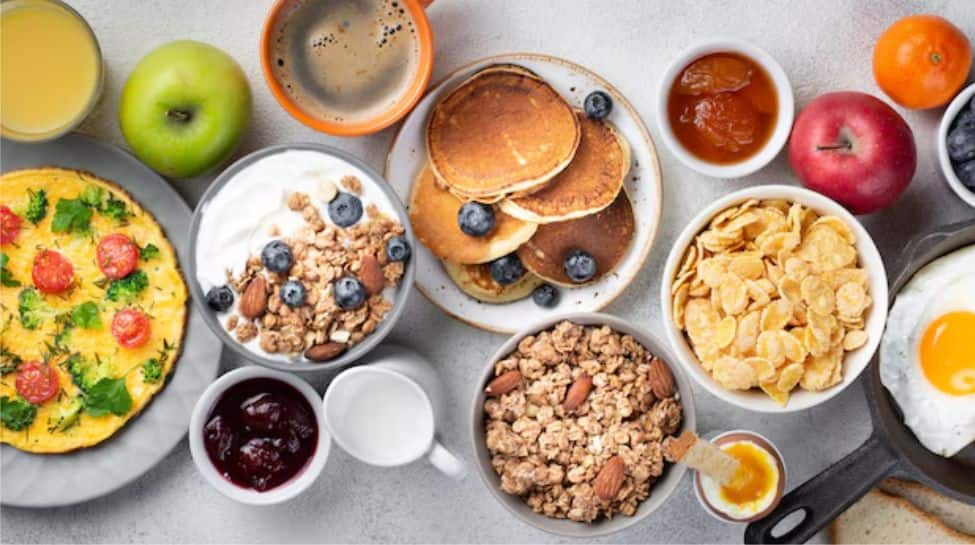When it comes to losing weight, many people assume that eating healthy foods in unlimited quantities is a foolproof strategy. After all, fruits, vegetables, whole grains, and other nutritious options are good for the body, right? However, while healthy foods are indeed vital for overall wellness, the idea of eating them in unlimited amounts without affecting your weight is more complicated than it seems.
Let's explore how portion control, calories, and the nature of “healthy” foods come into play when trying to lose weight.
The Role of Calories in Weight Loss
At the core of weight loss is a simple equation: calories in vs. calories out. To lose weight, you need to consume fewer calories than your body burns. Even if a food is healthy, it still contains calories. Eating large portions of calorie-dense healthy foods can easily push you over your daily calorie limit, making it hard to lose weight.
For instance:
- Nuts and seeds are incredibly nutritious, packed with healthy fats, protein, and fiber. But they are also high in calories. A handful of almonds (about 23 almonds) contains around 160 calories, and it's easy to overeat them.
- Avocados are loaded with heart-healthy fats, but a single avocado contains about 250-300 calories. Eating multiple avocados a day could add up quickly.
- Whole grains like quinoa and brown rice are excellent sources of energy and fiber, but portion sizes matter. One cup of cooked quinoa contains about 220 calories.
- Even if these foods are healthy, overeating them could slow down your weight loss progress.
The Concept of "Free" Foods
Some diets, like certain types of plant-based or low-calorie plans, promote "free" foods that you can eat without counting. These usually include low-calorie, high-water-content foods such as:
- Leafy greens
- Cucumbers
- Celery
- Tomatoes
These foods are low in calories and high in fiber, meaning you can eat them in larger quantities without worrying about consuming too many calories. However, these alone won’t make up a balanced diet, and pairing them with higher-calorie healthy foods needs moderation.
How Fiber and Water Help
Many healthy foods are high in fiber and water, which can help you feel fuller on fewer calories. Foods like fruits, vegetables, legumes, and whole grains are excellent sources of fiber. Because fiber takes longer to digest, it helps control hunger by making you feel satisfied for longer periods.
For example:
- Berries (such as strawberries and blueberries) are rich in fiber and water, allowing you to eat larger portions without adding many calories.
- Leafy greens like spinach and kale are nutrient-dense but very low in calories, meaning you can eat a lot of them without consuming many calories.
- Incorporating high-fiber foods into your meals can help reduce your overall caloric intake, making it easier to lose weight.
The Quality of Calories Matters Too
Not all calories are created equal. For example, the same number of calories from processed foods like chips and candy will affect your body differently than calories from whole foods like fruits, vegetables, or lean proteins. Highly processed foods can spike your blood sugar, leading to cravings and overeating, while nutrient-dense whole foods provide steady energy, help control appetite, and keep you feeling full.
So, while managing calorie intake is important, focusing on nutrient-dense foods will give you better results than simply eating less of everything.
Portion Control Still Matters
Even though healthy foods are beneficial, portion control remains crucial when trying to lose weight. Here are a few tips to ensure you’re not overeating healthy foods:
- Watch your portions: Use smaller plates or bowls to naturally limit portion sizes. Pre-portion high-calorie foods like nuts and seeds to prevent mindless overeating.
- Balance macronutrients: Aim for a mix of proteins, healthy fats, and carbohydrates in your meals. This balance helps control hunger and prevents overeating.
- Mindful eating: Pay attention to hunger and fullness cues. Eating slowly allows your brain to register that you're full, reducing the likelihood of overeating.
While it’s tempting to think you can eat unlimited healthy foods and still lose weight, the reality is that portion sizes and calorie intake still matter, even with nutrient-rich foods. Focus on consuming whole, unprocessed foods, pay attention to your body’s signals, and keep portion sizes in check to achieve sustainable weight loss.
(This article is meant for informational purposes only and must not be considered a substitute for advice provided by qualified medical professionals.)
















